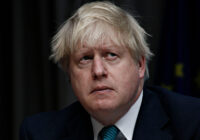Parties of the Right have enjoyed good fortune in Europe lately. However, the British elections this year came as a relief to the Left. Sir Keir Starmer’s Labour Party won 411 seats out of 650 in the House of Commons. In the previous elections in 2019, Conservatives had won 365 seats, breaching Labour’s fabled red wall in the North.
Jeremy Corbyn, the left-wing erstwhile Labour leader, is now no longer in the party. Under Starmer, Labour has moved resolutely to the center even as the Tories (as British Conservatives are called) have imploded into post-Brexit fratricidal bloodletting.
Related Reading
The UK has a parliamentary, first-past-the-post system. The candidate with the most votes becomes the member of parliament (MP) in each constituency. The party leader who commands a majority in the House of Commons becomes prime minister and governs the UK from 10 Downing Street.
The first-past-the-post system can lead to strange results. For instance, the Liberal Democrats won a lower percentage of votes than Nigel Farage’s Reform UK, but the former won far more seats than the latter in these elections. However, the Tories and the Scottish Nationalists were the big losers in 2024 while smaller parties flourished, as the table below demonstrates.

Unusually for any British government, the new Labour government is led by former civil servants rather than professional politicians. Starmer is a centrist who aims to bring back stability to the UK. Before his political career, Starmer was the head of the Crown Prosecution Service. His new Chancellor of the Exchequer, Rachel Reeves, worked in the Bank of England. Both have a reputation for competence and prudence. Like previous prime ministers Rishi Sunak, Liz Truss, Boris Johnson, Teresa May and David Cameron, Starmer and Reeves went to the University of Oxford. However, they did not come from affluent backgrounds or go to elite schools. They beat the odds to rise to the top.
Unlike leaders of the Left in many other parts of the world, Reeves is not promising any increased government spending. Instead, she is advocating supply-side economics to boost growth. In her first major speech, Reeves promised to make economic growth the number-one priority for her government through increased private investment, labor participation and productivity. Both Starmer and Reeves are fiscally prudent, which should lead the British economy to stabilize after a rocky eight years following the 2016 Brexit referendum.
Fund managers and business leaders in New York and London say that the risk premium for UK assets will go down because of the Labour government’s reputation for responsibility. They believe that Starmer and Reeves will steer a closer relationship with Europe, reduce frictions in UK–EU trade and give a fillip to house-building. In contrast to most other democracies, this party of the Left has won a thumbs-up from markets and business leaders.
Conservative meltdown facilitated Labour victory, now what?
As this author predicted in 2016, Brexit turned out to be “a damn close-run thing,” and what followed was madness. Prime ministers came and went with alarming frequency; Truss enjoyed less than the shelf life of a head of lettuce. Post-Brexit Britain could not make up its mind whether to become Singapore-on-Thames or a revived manufacturing power with rejuvenated northern cities. Immigration continued to be a problem. Shipping migrants to Rwanda did not excite the public. Johnson’s parties during the COVID-19 pandemic turned public chafing against draconian government restrictions into open anger. Sunak had the charisma of a dead mouse and demonstrated a gift for fatal political gaffes such as leaving D-Day celebrations early for a meaningless television interview. In a nutshell, the Tories screwed up so badly that a Labour victory was obvious long before the elections.
Related Reading
Labour’s victory is massive. Yet it is a shallow one. Only one in five Britons voted for the party. Importantly, voter turnout fell from 69% in 2019 to 60% in 2024. In 2017, nearly 12.9 million people voted Labour. In 2019, this figure fell below 10.3 million. This year, a little fewer than 9.7 million voters cast their ballots for Labour. A graph by FOI, a political and geopolitical risk advisory, tells an interesting tale of voting numbers and parliamentary seats over the last two British elections.
British politics have become extremely dynamic. New trends are worth noting. The significant vote shares of the right-wing populist Reform UK Party — second to Labour in 92 constituencies — and the Green Party — second to Labour in 41 constituencies — put pressure on Labour to improve immigration and environmental policies, respectively. Recent riots all across the UK show that voters are concerned about migrants flooding the UK. The Starmer government will have to restrict arrivals. In fact, immigration was a key reason why voters chose Brexit in 2016.
During the election campaign itself, Labour promised a more effective approach to tackling illegal immigration and unveiled a plan to bring net migration down by training British workers. Labour threatened to block non-compliant companies from sponsoring visas for their overseas employees. On his first full day as prime minister, Starmer canceled the outgoing Conservative government’s plan to deport illegal migrants to Rwanda, saying, “I’m not prepared to continue with gimmicks that don’t act as a deterrent.” Instead, his government aims to curb small boats crossing the English Channel by hiring investigators and using counter-terror powers to “smash” criminal people-smuggling gangs.
On the renewable energy front, Starmer’s government has promised to accelerate the development of large projects by assessing them nationally, not locally, and ending an effective ban on onshore wind farms. The rise of the Green Party, as mentioned earlier, and the resurgence of Liberal Democrats (the party for the nice Tories of the shires) will make Starmer’s Labour more environmentally friendly than Sunak’s Tories. (As an aside, the Liberal Democrats’ victory in Tory heartlands saw them win seats held by five former Tory prime ministers.)
Most political parties with such a large majority would enact a far more radical agenda. Starmer is determined to do no such thing. Those close to the prime minister reveal that he is playing the long game and aims to be in power for at least two terms. Starmer is determined to win back Labour’s credibility as the party of responsible government after 14 years in opposition and the damage suffered under Corbyn’s leadership.
The country is now led not by alumni of the famous public schools (the curious British name for expensive private schools) but by leaders who hail from the working and middle classes. They are more self-reflective, grounded and rigorous than their Conservative counterparts. To put it in English Civil War parlance, Starmer and Reeves are Roundheads, not Cavaliers. After years of posh public schoolboys from Eton and Winchester ruling the roost, no-nonsense commoners are on top.
The views expressed in this article are the author’s own and do not necessarily reflect Fair Observer’s editorial policy.
Support Fair Observer
We rely on your support for our independence, diversity and quality.
For more than 10 years, Fair Observer has been free, fair and independent. No billionaire owns us, no advertisers control us. We are a reader-supported nonprofit. Unlike many other publications, we keep our content free for readers regardless of where they live or whether they can afford to pay. We have no paywalls and no ads.
In the post-truth era of fake news, echo chambers and filter bubbles, we publish a plurality of perspectives from around the world. Anyone can publish with us, but everyone goes through a rigorous editorial process. So, you get fact-checked, well-reasoned content instead of noise.
We publish 2,500+ voices from 90+ countries. We also conduct education and training programs
on subjects ranging from digital media and journalism to writing and critical thinking. This
doesn’t come cheap. Servers, editors, trainers and web developers cost
money.
Please consider supporting us on a regular basis as a recurring donor or a
sustaining member.
Will you support FO’s journalism?
We rely on your support for our independence, diversity and quality.












